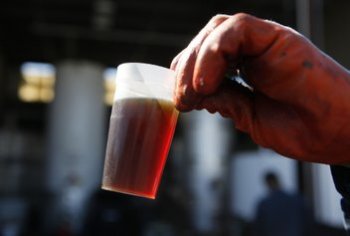Dec 22 2010
At the New Leaf Biofuel located at the Barrio Logan facility, Efren Montoya collects and accumulates used cooking oil that would later be converted to biodiesel to fuel diesel trucks. They collect and process the used cooking oil to almost 30,000 to 40,000 gallons per month from 1000 domestic restaurants.
The biodiesel is then sold to distributors who sell the fuel to clients with diesel truck fleets such as C&D Towing in Barrio Logan and the Allied Waste in Chula Vista, which runs a fleet of recycling and trash trucks. Allied Waste has been utilizing biodiesel from 1993 onwards.

According to Steve Miesen, Division Manager of Allied Waste, they not only take a waste product to be refined and then use it in their trucks but pick up waste or recyclable materials from the same restaurants that generate the waste oil. As they were supporting a local business they were creating jobs and every gallon of biofuel thus manufactured is fuel that is not being imported and hence helping in the trade deficit. He commented that to put in simple terms, fried chicken oil used on a Friday could be the fuel used in the trucks that would collect the trash from the Chula Vista area in the next week.
Jennifer Case, from New Leaf, revealed that the company had begun with one old GMC truck and at that time did not have the know-how to convert oil to biodiesel. Government grants such as a state grant of $590,000 and also a loan of the same amount from the Technology Department of San Diego City had helped the company to construct its processing unit in Newton Avenue in the year 2008. The company presently employs 20 full time staff and other than the 40,000 gallons of used oil must purchase an added 60,000 to 70,000 gallons every month to fulfill the biodiesel demands from the distributors. It is planning to expand its current output to nearly double i.e. 2.5 million gallons annually in 2011. Even though New Leaf is active, all is not right on the biodiesel front. Due to the loss of federal tax incentives in 2009 many biodiesel firms have shut down in 2010.
A new federal mandate that required producers or importers of fossil fuels to buy renewable fuel credits, which were given to alternative fuel companies, came to New Leaf’s aid and the monetary value obtained from the credits balanced the loss of tax credits and allowed New Leaf to continue operations. Case further commented that people being afraid of change, resisted it. To go to a manufacturer who supplies quality biodiesel with a care to maintaining the quality standards would be the best thing for a consumer. The annual production of New Leaf is about 1 million gallons of biodiesel.